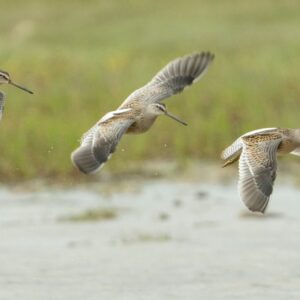Cultivating Ecological Education: Nurturing Young Minds for a Sustainable Future in Canada
As the back-to-school season sweeps across Canada, a unique opportunity presents itself to instill a deep-rooted sense of ecological awareness and responsibility in the hearts and minds of the younger generation. The importance of ecological education during these crucial months cannot be understated, as it not only empowers children with the knowledge to understand and address environmental challenges but also fosters a lifelong commitment to preserving Canada’s rich natural heritage. As a teacher and outdoor educator I often see the need for ecological education and alternative supports for learning throughout the public school system from K-12.
Understanding the Importance of Ecological Education
Ecological education goes beyond traditional classroom learning, encompassing a holistic approach that integrates scientific knowledge, hands-on experiences, and a strong sense of stewardship for the environment. It equips children with the tools to comprehend complex ecological systems, appreciate biodiversity, and grasp the interconnectedness between human actions and the natural world. By nurturing this understanding early on, we lay the foundation for a generation that is capable of making informed decisions and leading initiatives that promote sustainability and conservation.
Building a Sustainable Mindset
The back-to-school months provide an ideal window to introduce ecological concepts in a comprehensive and engaging manner. Through interactive lessons, field trips, and practical projects, children can be exposed to real-world environmental issues such as climate change, habitat destruction, and pollution. These experiences not only awaken their curiosity but also inspire them to become active participants in safeguarding the planet. By fostering a sustainable mindset from an early age, we empower children to critically assess their own behaviors and encourage positive changes within their families and communities.
Connecting Classroom Learning with Real-World Applications
Ecological education thrives when it bridges the gap between theory and practice. Collaborations with local environmental organizations, nature reserves, and wildlife centers can bring children face-to-face with the wonders of nature and the challenges it faces. Hands-on experiences like planting trees, participating in clean-up drives, and observing wildlife in their natural habitats create lasting impressions and a profound connection to the environment. These practical encounters transform abstract concepts into tangible actions, inspiring a sense of responsibility and accountability for the world around them.
Promoting Inclusivity and Diversity
Ecological education also has the power to promote inclusivity and diversity by emphasizing the interconnectedness of all life forms and ecosystems. By exploring different biomes, cultures, and indigenous knowledge systems, children gain a broader perspective on environmental issues and solutions. This approach not only enriches their understanding but also cultivates empathy and respect for diverse perspectives, enabling them to become effective global citizens who collaborate across boundaries to address shared environmental challenges. Further, students who often are not wired for the structured setting of public school education often find support, guidance, and real world experiences that provide skills and knowledge that can last a lifetime.
Preparing Future Leaders and Innovators
The ecological challenges facing Canada and the world demand innovative solutions and informed leadership. Ecological education nurtures the qualities required to tackle these challenges head-on. Children exposed to ecological concepts are more likely to pursue careers in environmental science, policy-making, conservation, and sustainable development. In addition, youth with behaviours deemed unacceptable for certain learning environments often thrive and blossom into capable critical thinkers who will become the future leaders and voices of ecology, biodiversity, and the fight against climate change.
By imparting a profound understanding of the natural world, fostering a sustainable mindset, connecting classroom learning with real-world experiences, promoting inclusivity, and preparing future leaders, we are nurturing a generation that holds the key to a greener, healthier, and more harmonious planet. In the end, the investment in ecological education today ensures a legacy of environmental stewardship and sustainable progress for generations to come.
Subscribe to our emails to receive regular updates about what we’re doing to protect nature — and how you can help.



